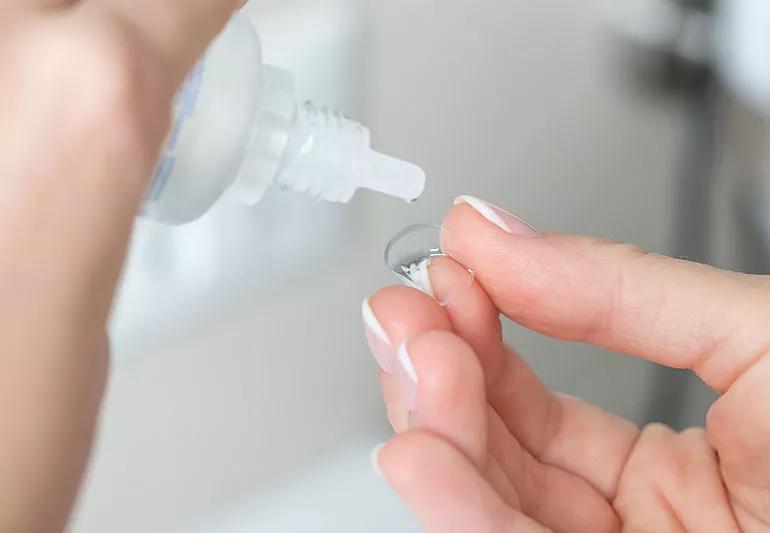Irritated eyes are just the beginning if you leave your contacts in too long

Image content: This image is available to view online.
View image online (https://assets.clevelandclinic.org/transform/800165a0-7d95-4511-809d-3b3c4fe0b636/sleepContact-543468876-770x553-1_jpg)
washing contact
Do you ever fall asleep wearing your contact lenses? It’s hard to remember every night to take out your contacts and it’s not always convenient, either.
Advertisement
Cleveland Clinic is a non-profit academic medical center. Advertising on our site helps support our mission. We do not endorse non-Cleveland Clinic products or services. Policy
But if you’ve done it, you know the morning struggle to get those dried out sticky lenses unstuck from your eyeballs might be even more frustrating.
Sleeping in lenses was the most common offense reported by people who wear contacts according to a report released by the U.S. Centers for Disease Control and Prevention (CDC).
You know it’s bad for your eyes. But sometimes you might think not having to go through the trouble of taking out your contacts is worth the risk.
“Redness and irritation is a common problem if you leave your contacts in when you sleep. But you can also experience other problems with your cornea, which is the front surface of your eye,” says ophthalmologist Allison Babiuch, MD.
“It’s important to give the eyes a break and let the cornea breathe, and when your eyes and contacts dry out too far you can cause damage when you pull it off,” she says.
Despite some contact lenses being approved for overnight wear, Dr. Babiuch says she still doesn’t recommend them.
Sleeping in daily wear contacts also greatly increases your risk for eye infections.
CDC researchers found that six out of seven contact lens wearers reported at least one risky behavior when it came to their contact lenses.
Advertisement
“Your eyes are sensitive and very susceptible to damage, so making sure you take care of them is extremely important,” Dr. Babiuch says. “Think of how difficult it is to go about your day when your eyes are irritated in any way — so being proactive is really recommended.”
To reduce the risk of developing any negative symptoms or an eye infection, don’t do the following things:
Do these things to keep your eyes healthy and safe from infection:
If you experience decreased vision, redness, watering and discharge you may have an eye infection.
If removing a lens doesn’t help the irritation, it’s time to visit an eye doctor — and don’t forget to bring the problematic lens too.
“Take the contact lens out, but keep it, don’t throw it away,” Dr. Babiuch says. “Put it in a contact lens case and bring it with to your appointment — if we do see signs of infection we can also culture the contact lens to get closer to both understanding and treating the problem.”
Advertisement

Sign up for our Health Essentials emails for expert guidance on nutrition, fitness, sleep, skin care and more.
Learn more about our editorial process.
Advertisement
Contact lenses are available for virtually every prescription and lifestyle
Even contacts made for overnight use can hurt your eyes
The short answer from an ophthalmologist
The short answer from an optometrist
Redness, pain and blurred vision? See your doctor now
It’s critical to have the proper eyewear if you plan to look up at the sun, especially during the total solar eclipse on April 8, 2024
Nocturnal lagophthalmos may be caused by damaged nerves or muscles in your face
Act quickly when a chemical or object gets in your eye
Type 2 diabetes isn’t inevitable with these dietary changes
Applying a hot or cold compress can help with pain
Pump up your iron intake with foods like tuna, tofu and turkey